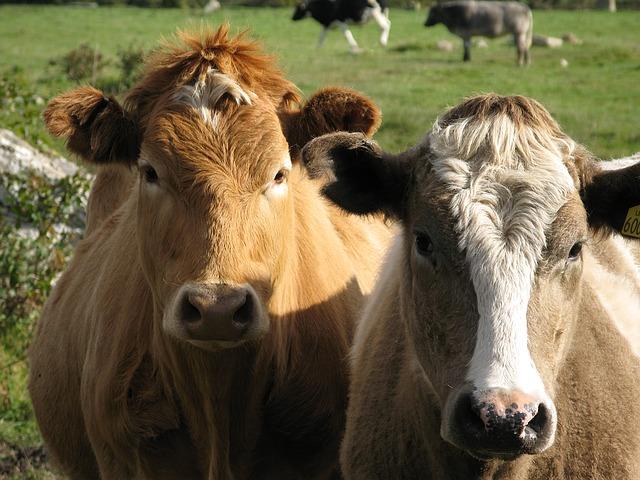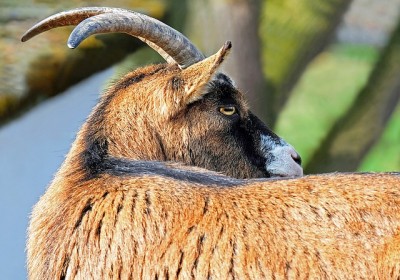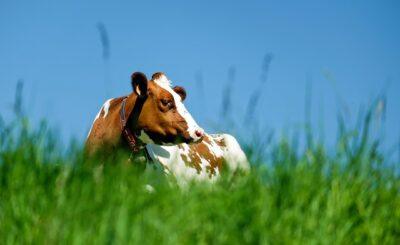The verdict is in, and you have decided to keep goats. Or raise pigs. Or cattle, or other livestock. You have considered all the factors that must be taken into account, such as your amount of space, quality and quantity of infrastructure, and climate. You have thought about your own needs, too, and how your animals will mesh with your already-existing schedule.
Those are wise considerations. But there are additional questions you will need to ask, both before you get started and as you go. Following are a few of those questions, and some pros and cons of each which might help you with your own decision-making process.
1. Will You Keep Heritage Breeds?
These are the breeds that are not kept by large-scale commercial farmers and are far fewer in number.
Pros: Often the reason these breeds have fallen from favor is because they are less conducive to factory farming, but they can be stronger, smarter, better tasting, or easier hand-milkers than their standard counterparts.
By keeping heritage breeds, you will help preserve an alternative choice. If a disease comes along which can decimate the more common breeds, genetic diversity is a real plus.
Diatomaceous Earth: The All-Natural Livestock De-Wormer [2]
If you are raising animals for profit, heritage breeds have top dollar potential. Many chefs and foodies are willing to pay a little extra for the flavors of meat and cheeses from these breeds. In addition, other farmers expect to pay more for live animals.
Cons: It can be difficult to find adequate breeding stock. And when you do find it, you are apt to pay more. When I kept Oberhasli goats — listed as “recovering” by The Livestock Conservancy — it was difficult for me to find a sufficiently unrelated male in my area.
Some heritage breeds might be more or less prone to certain diseases or parasites, potentially causing certain very rare breeds to be problematic for veterinary care.
2. Miniature vs. Full Size?
Cows, horses, donkeys, goats, sheep, pigs and even chickens usually come in two size ranges — standard and mini.
Pros of Miniatures: They require a smaller browsing and grazing area and need less barn space, enabling them to be kept on smaller homesteads. It costs less to feed smaller animals, and some minis have a higher percentage of yield per dollar spent.
The reason many people choose miniature animals for meat and dairy is for the reduced output which is often more suitable for a modest household. Too much milk every day or more than a freezer full of meat can be wasteful.
Smaller animals can be less intimidating choices for farmers with less experience or of smaller stature. In addition, miniature livestock are high on the cute-o-meter, making them more popular and resulting in higher sales.
Miniature goats breed year-round instead of only during a certain season, which might be either bad or good depending upon one’s specific needs.
Cons: Consider how the breed was developed. When I was searching for a miniature milk cow, one breeder warned me that they are sometimes crossed with half-wild smaller breeds, yielding the size I wanted but not the temperament.
DNA is not yet fully understood. The genes that create a smaller animal can have unintended side effects on factors such as disease resistance, intelligence and longevity.
Miniature milking animals — particularly goats — usually have miniature teats, making them harder and more tedious to milk.
3. Registered or Not?
The lineage of registered animals is recorded on a publicly accessible data base and maintained by an association specific to that species and type. For example, the American Quarter Horse Association, or the American Dairy Goat Association.
Pros of Registering: Keeping registered livestock will enable you to study the lineage of both parents before breeding, in order to predict genetics and manage inbreeding. A national registry simplifies sales and networking among breeders. When I listed some of my Oberhasli for sale, prospective buyers half a continent away could easily examine their lineage online.
While it is debatable whether a registered animal is of higher quality, some people say that it is the owners of registered animals who are more desirable. People who invest in pedigreed livestock may be less likely to tie them to a leaky doghouse out back and abandon them.
Cons: Then again, people going for reputation and prize money may push their animals beyond their comfort limits. Registered animals with minor aesthetic flaws are unmarketable as breeding animals and usually go for meat — not an inherent con, but a fact to consider.
Crossing two breeds can create what some people refer to as “hybrid vigor,” which is harder to achieve within a registered herd.
And don’t forget—by registering your animals, you put information about them on the Internet. If you would rather keep your livestock information private, registration might not work for you.
4. Horns or no Horns?
This is a tough one for some people. Horns can be problematic, but the idea of removing them can be off-putting. The easiest option is to choose breeds which are naturally polled, meaning that the breed or strain has been developed without horns. That isn’t possible or practical for all species, however. Animals such as Texas Longhorn cattle and Jacob sheep are popular because of their horns, so polled varieties are not going to be found. In goats, polled varieties are not achievable because breeding polled-to-polled yields undesirable side effects.
Pros of Removing Them: There will be more options available for the animal long term. If you have ever tried to re-home a full-grown animal with horns, you know it can be difficult. For many species and breeds, horned animals are less desirable. There are also strict rules within some registries and sanctioned shows regarding horns.
Horned animals can injure humans, one another and themselves. They can get their horns stuck in fences and in one another’s collars.
Cons: Horns can act as built-in handles, allowing a human to steer and control the animal. They are natural air-conditioners, too.
The process of cutting off horns or burning horn buds is hard for soft-hearted folks like me. Animals feel pain, and removing horns is painful no matter how it is done.
When choosing between keeping horns or removing them, allow me to offer this word of caution: It is inadvisable to mix them. Animals are acutely aware of the presence of horns on both themselves and others, and those with them can bully those without.
5. Preventative Parasite Control
The traditional method has been to administer parasite control to every individual whether they needed it or not, but current wisdom is leaning toward the philosophy of less is more.
Pros of Prevention: Regular worming, dips and topical applications can free you from worry and require less monitoring. Many buyers require an animal to be up to date on worming, and lots of veterinarians continue to recommend it.
Avoiding preventative worming requires diligent observation practices, such as hands-on inspections, fecal exams and a keen eye for subtle changes. If something slips by the farmer, it can spiral out of control quickly.
This Cool-To-The-Touch Lantern Provides 100,000 Hours Of Emergency Backup Lighting [5]
Cons: Overtreatment can cultivate superbugs. Worming kills off only the parasites that are easy to kill, leaving the rest to mutate into medication-resistant strains.
Allowing an animal to encounter and fight off an infestation on its own builds up parasite resistance on the farm. By treating only the sick animals, the overall herd health is improved. Most veterinarians I have spoken with are strongly in favor of using anti-parasitic treatments only as needed.
6. Keeping a Breeding Male
Let’s face it, the boys can be a handful. And around the farm, they really only have one function while they are living.
Pros of Breeding: Finding a breeding male can be challenging — research for the right genetics, make arrangements for a rental, and worry about transportation of either him or your females. You might have to watch your stock carefully for signs of estrus, and then be ready to skip a day of work to load up your livestock trailer and make your way through a thunderstorm snowstorm.
Cons: They chase the girls, smell up the barnyard, negatively affect the taste of goat’s milk, are often hard to handle and can occasionally even be dangerous. Keeping your own breeding stock means separate living quarters, which around my house includes shoveling an extra path and lugging extra water all winter and setting up extra fencing all summer.
You can choose artificial insemination instead, which has its own set of challenges.
There is little doubt that the practice of keeping livestock can be complicated. Along with work and responsibility, it comes with new questions which must be asked and answered every day. If you are among those who have decided to raise livestock of your own, be encouraged. The work is achievable and the answers are attainable, and the rewards are worth it all.
What advice would you add on buying livestock? Share your thoughts in the section below:
Harness The Power Of Nature’s Most Remarkable Healer: Vinegar [6]


